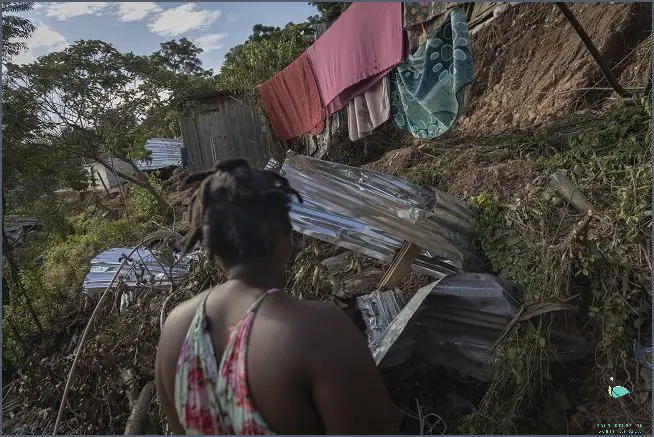
Black South Africans are citizens of South Africa who are of African descent. They are the largest population group in the country, making up 79.2% of the total population according to the 2011 census. Black South Africans have a long and complex history in the country and are descendants of a variety of ethnicities, including Bantu, Khoisan, and San peoples. They have faced centuries of racial discrimination, segregation, and oppression under the Apartheid system, which ended in 1994. Since then, South Africa has made significant progress in improving the lives of black South Africans, although many challenges remain. Black South Africans are active in politics, business, media, sports, and culture, and have had a significant impact on the development of the country.
Contents
Black South African
Black South Africans are an important part of the South African population. Having a long history of oppression and racism during Apartheid, Black South Africans have made great strides in their fight for equality and freedom. Today, Black South Africans are represented in a variety of industries and continue to contribute to South Africa’s economy and culture. They are also heavily involved in politics, making sure their voices are heard and their rights are respected. The Black South African community is a vibrant and diverse one, with many different backgrounds and cultures being represented. With the help of organizations like the African National Congress, Black South Africans are working to create a more equitable future for themselves and all South Africans.
Apartheid and its effects on Black South African people
Apartheid, the legal system of racial segregation that existed in South Africa from 1948 to 1994, had a profound and lasting effect on black South African people. The system was designed to ensure that whites had economic and political control over the majority black population, leading to a disadvantaged and unequal society.
Under apartheid, black people were denied the right to vote, could not receive an education, and were barred from certain jobs and sectors. They were also subjected to arbitrary arrests, and were frequently the victims of police brutality. The government also implemented a policy of forced removals, uprooting thousands of black people from their homes and relocating them to rural areas.
The effects of apartheid on black South African people were devastating. Poverty, unemployment, and homelessness were all widespread, and racial discrimination was commonplace. Access to basic services, such as healthcare and education, was severely limited.
The legacy of apartheid is still felt today. Even after the system was abolished, black South Africans continued to experience poverty, low wages, and unequal access to education and healthcare. The government has attempted to right the wrongs of the past through affirmative action policies and targeted social programmes, but the effects of apartheid remain deeply entrenched in South African society.
The legacy of apartheid has left scars that will remain for generations to come. It is only through continued education and dialogue that we can work to heal the wounds left by this oppressive system.
Contemporary South African society and the Black population
The contemporary South African society is one that is a complex tapestry of cultural, racial, and socioeconomic diversity. Of all the groups that comprise this society, the Black population is perhaps the most significant.
Black South Africans have a long and rich history that stretches back centuries. The Black population of South Africa has been deeply involved in the struggles against colonialism and apartheid, which have shaped much of the country’s modern history.

The Black population of South Africa has faced a number of hardships, from the oppressive policies of apartheid to the ongoing struggle for economic and social equality. Despite this, the Black population of South Africa has been resilient, and many Black South Africans have achieved success in business, politics, and the arts.
The Black population of South Africa is not a monolithic group; it includes people from a variety of backgrounds, including the Zulu, Xhosa, Sotho, and Tswana. This diversity has its advantages; it allows individuals to draw on the strengths of their respective cultures, while also benefiting from the collective knowledge and experience of the wider Black population.
The Black population of South Africa is also an important part of the nation’s economy. Black South Africans are heavily involved in the agricultural, industrial, and tourism sectors, making up a large proportion of the country’s workforce.
The Black population of South Africa is also involved in a number of social and political movements, ranging from the struggle against racial inequality to the fight for gender equality. These movements are driven by a desire to ensure that the Black population of South Africa is able to fully participate in the country’s political and economic life.
Overall, the Black population of South Africa is a vital part of the nation’s contemporary society. They are a resilient people who have faced immense hardship, yet have persevered in their struggle for justice and equality. They are also an important part of South Africa’s economy, contributing significantly to the nation’s workforce. As such, the Black population of South Africa is essential for the continued prosperity of the nation.
Social and economic challenges of the Black South African people
The social and economic challenges facing the Black South African people are numerous and deeply rooted in the nation’s history. From colonialism to apartheid, the Black South African people have faced decades of systemic discrimination, poverty, and inequality that have had far-reaching implications on their quality of life and ability to access basic amenities.
The legacy of apartheid is inextricably linked to the current social and economic challenges facing the Black South African people. The system of Apartheid, which was introduced in 1948, was designed to limit the rights and opportunities of the Black South African population. This included segregation and the restriction of basic rights and freedoms, such as voting, education, and employment. As a result, the Black South African population experienced a dramatic decrease in their quality of life.
The economic challenges experienced by the Black South African population are primarily rooted in the unequal land distribution that existed during the apartheid period. According to the Suid-Afrikaanse Akademie vir Wetenskap en Kuns, the apartheid system “resulted in the dispossession of most of the country’s land by the white minority and the perpetuation of extreme levels of poverty and inequality among the majority black population.”
The legacy of apartheid continues to shape the economic opportunities available to the Black South African population today. The vast majority of land remains in the hands of the white minority, leading to an unequal distribution of resources and a lack of economic opportunities for Black South African people. This has led to a cycle of poverty and inequality, as the lack of opportunity limits the ability of many to break out of the cycle.
The social challenges facing the Black South African people are closely linked to the economic challenges. Poverty and inequality are two of the most pressing issues that the Black South African population face. This has led to a lack of access to basic amenities, such as clean water, sanitation, and healthcare. This has had a devastating impact on the health and wellbeing of the population, with high rates of infant mortality and disease. In addition, the lack of access to education and employment opportunities has further limited the potential of many Black South African individuals.
The social and economic challenges facing the Black South African people are deeply rooted in the nation’s history. However, it is important to note that the challenges are not insurmountable. With concerted efforts to redress the legacy of apartheid and promote economic and social justice, the potential for the Black South African people to achieve greater social and economic equality is within reach.
Conclusion
The legacy of Black South Africans is one of resilience and strength. Despite facing decades of discrimination, racial inequality and oppression, Black South Africans have persevered and fought for their rights. The legacy of the past has left a legacy of hope and progress that has improved the lives of Black South Africans and has provided a foundation for a better future. While there is still much work to be done to ensure that all South Africans enjoy equal rights and opportunities, the progress made by Black South Africans is a testament to the power of collective action and hope.




